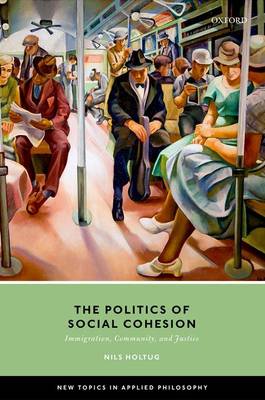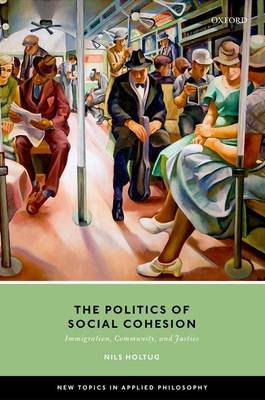
- Afhalen na 1 uur in een winkel met voorraad
- Gratis thuislevering in België vanaf € 30
- Ruim aanbod met 7 miljoen producten
- Afhalen na 1 uur in een winkel met voorraad
- Gratis thuislevering in België vanaf € 30
- Ruim aanbod met 7 miljoen producten
Zoeken
€ 156,45
+ 312 punten
Omschrijving
Immigration is a divisive policy issue in modern liberal democracies. A common worry is that immigration poses a threat to social cohesion, and so to the social unity that underpins cooperation, stable democratic institutions, and a robust welfare state. At the heart of this worry is the suggestion that social cohesion requires a shared identity at the societal level. In The Politics of Social Cohesion, Nils Holtug gives a careful assessment of the impact of immigration on social cohesion and egalitarian redistribution. First, he critically scrutinizes an influential argument, according to which immigration leads to ethnic diversity, which again tends to undermine trust and solidarity and so the social basis for redistribution. According to this argument, immigration should be severely restricted. And second, he considers the suggestion that, in response to worries about immigration, states should promote a shared identity to foster social cohesion in the citizenry. Holtug argues that the effects of immigration on social cohesion do not need to compromise social justice, and that core principles of liberty and equality not only form the normative basis for just policies of immigration and integration but, as a matter of empirical fact, are also the values that, if shared, are most likely to produce the social cohesion among community members that provides the social basis for implementing justice.
Specificaties
Betrokkenen
- Auteur(s):
- Uitgeverij:
Inhoud
- Aantal bladzijden:
- 320
- Taal:
- Engels
- Reeks:
Eigenschappen
- Productcode (EAN):
- 9780198797043
- Verschijningsdatum:
- 31/03/2022
- Uitvoering:
- Hardcover
- Formaat:
- Genaaid
- Afmetingen:
- 164 mm x 238 mm
- Gewicht:
- 580 g

Alleen bij Standaard Boekhandel
+ 312 punten op je klantenkaart van Standaard Boekhandel
Beoordelingen
We publiceren alleen reviews die voldoen aan de voorwaarden voor reviews. Bekijk onze voorwaarden voor reviews.











